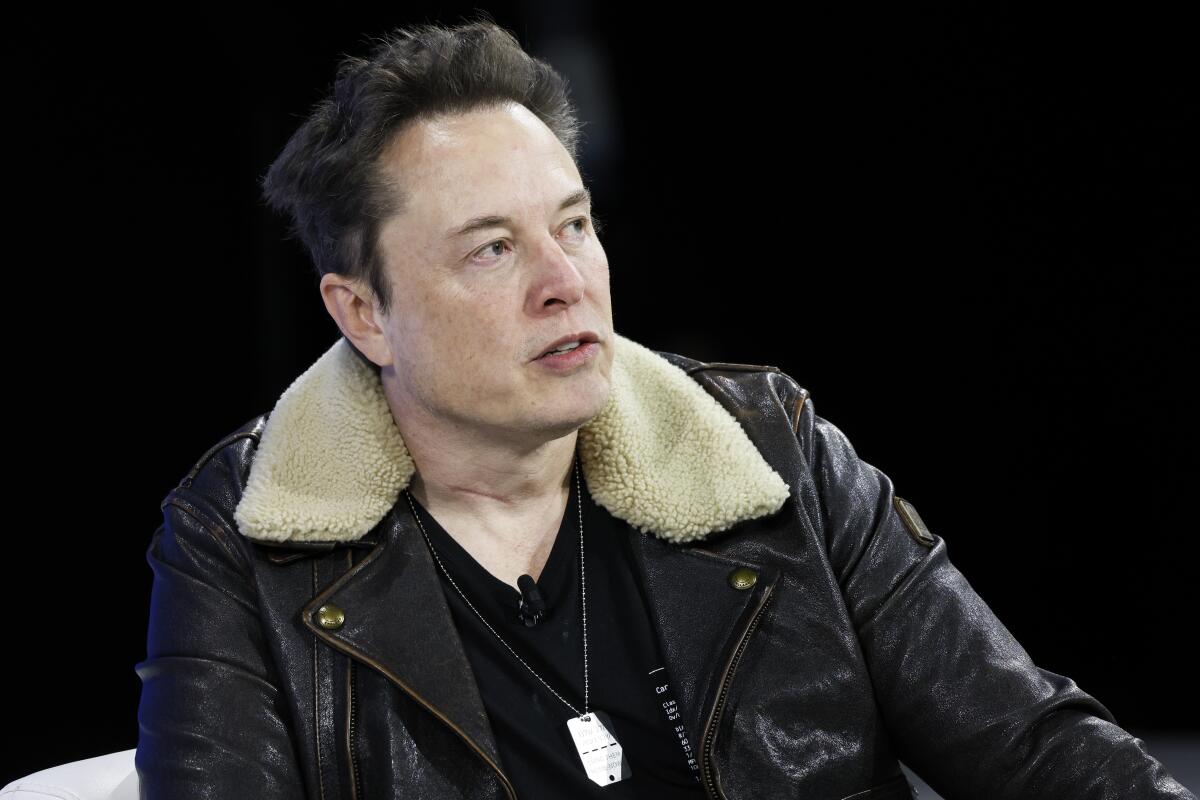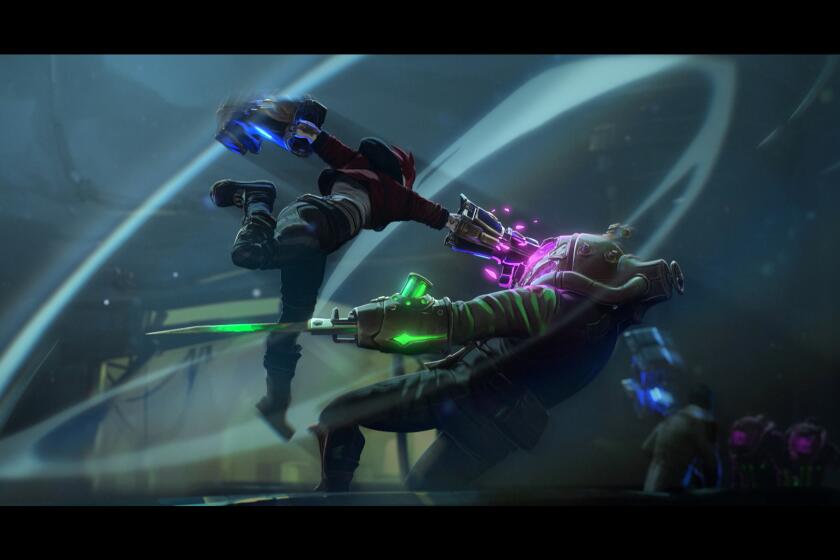Elon Musk tells off Disney’s Iger and other fleeing advertisers in DealBook interview

Stung by an advertiser boycott and accusations of antisemitism, Elon Musk didn’t hide his hurt feelings in an onstage interview at the New York Times’ DealBook Summit conference.
“Go f— yourself,” he said to the advertisers who have fled social media platform X, formerly Twitter.
Then, apparently addressing Disney Chief Executive Bob Iger in the audience, he said with a smile and a wave: “Hey, Bob.”
In a wide-ranging discussion with DealBook’s Andrew Ross Sorkin on Wednesday, the Tesla CEO discussed the recent ad boycott, the rollout of the Cybertruck, his own emotional state, a recently announced union drive at Tesla factories and more.
The lengthy, meandering interview displayed sides of Musk from combative and smug to philosophical and contemplative.
He apologized for a tweet he made early this month that appeared to publicly endorse a notorious antisemitic conspiracy theory blaming Jewish people for promoting immigration to disempower white Americans.
“I am quite sorry,” he said. “I should in retrospect not have replied to that particular post.”
But Musk seemed less contrite when asked about the ensuing pullback by advertisers, including Apple, IBM and Lionsgate Entertainment.
“Don’t advertise,” he said, calling it “blackmailing” by advertisers. Disney did not immediately respond to a request for comment.
Advertising accounts for most of X’s revenue, and Musk acknowledged that no advertising could mean the downfall of the platform.
“What this advertising boycott is going to do is kill the company,” Musk said. “And the whole world will know that those advertisers killed the company.”
But, Sorkin asked, in that event, wouldn’t it be Musk’s actions that killed the company, not those of advertisers? To which Musk retorted: “Tell it to Earth. ... Let’s see how Earth responds to that.”
Musk’s comments probably will make life harder for X chief Linda Yaccarino, an industry veteran brought on to mend the platform’s tenuous relationship with advertisers. But Yaccarino appeared to back Musk’s position in a statement on X.
“X is enabling an information independence that’s uncomfortable for some people,” Yaccarino said. “And here’s my perspective when it comes to advertising: X is standing at a unique and amazing intersection of Free Speech and Main Street — and the X community is powerful and is here to welcome you. To our partners who believe in our meaningful work — Thank You.”
Musk later said he’s said many “foolish” things on the platform, but the tweet regarding the conspiracy theory “might be one of the worst and dumbest things I’ve ever done.”
Elon Musk has gone full antisemite, raising questions about the future of his companies and their relationships with commercial and government entities.
At another point in the interview, Musk turned boastful when speaking about Tesla’s electric vehicle sales, which, he said, surpass those of all other automakers combined.
“I have done more for the environment than any other person on Earth,” he said. On Thursday, the company made its first deliveries of the Cybertruck, an electric pickup truck that was first unveiled four years ago.
Musk also commented on the recent debacle at OpenAI, which he helped co-found.
“It should be renamed Super Closed Source for Maximum Profit AI,” he said. Musk said he had “mixed feelings” about Sam Altman, who was ousted and then restored as CEO of OpenAI.
With Musk showing an increasing affinity for Republican and right-wing political causes, Sorkin attempted to pin him down on his voting plans. How would he vote in a hypothetical face-off between President Biden and Donald Trump in the 2024 election? “I think I would not vote for Biden,” Musk said.
Musk added that he wasn’t saying he would vote for Trump either, nor would he vote for Nikki Haley or any “pro-censorship” candidate.
“This is definitely a difficult choice here,” he said.
Musk was also asked about a unionization push announced Wednesday by United Auto Workers at Tesla, BMW, Toyota and several other major automakers.
“I don’t like anything which creates a kind of lords and peasants kind of thing,” Musk said. “I think unions naturally create negativity in a company.”











